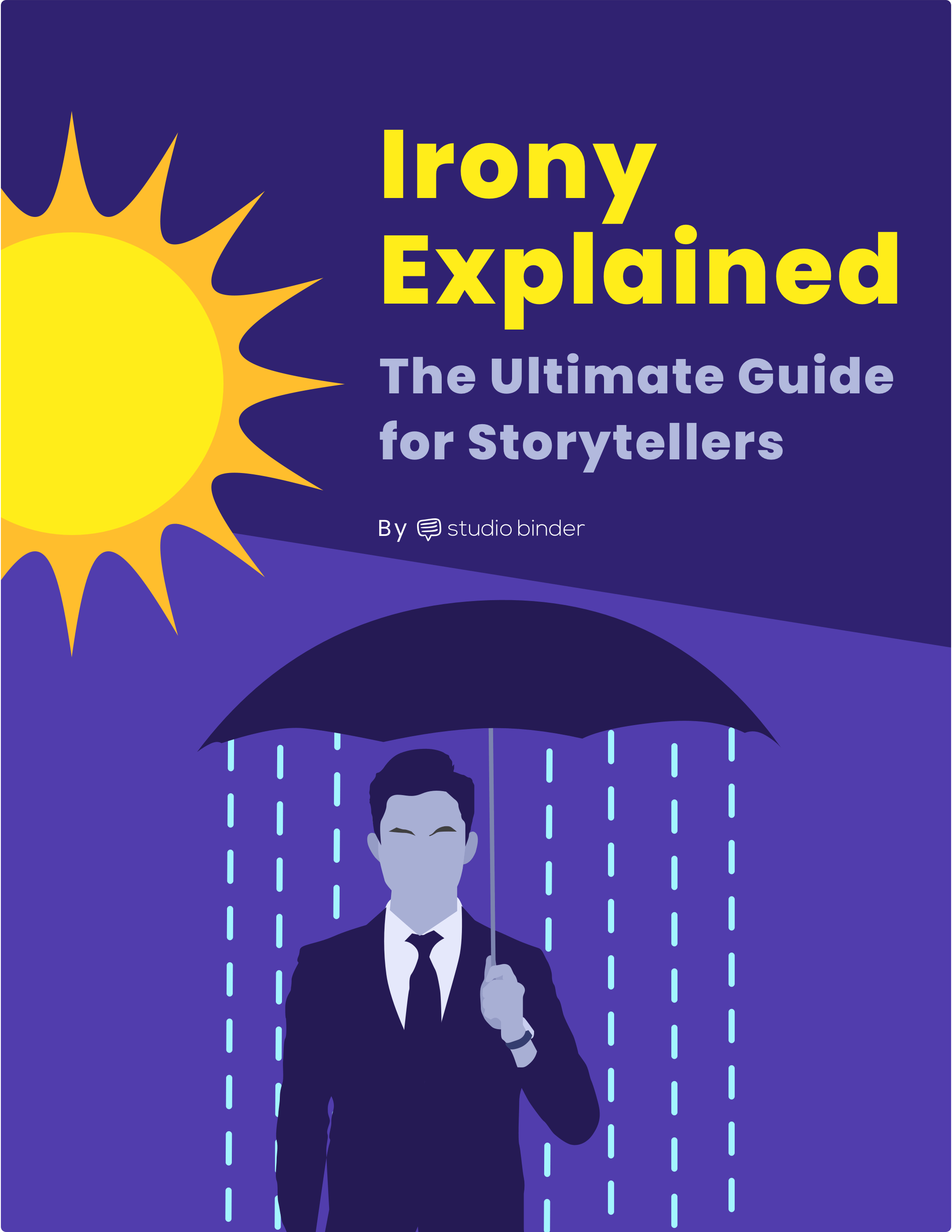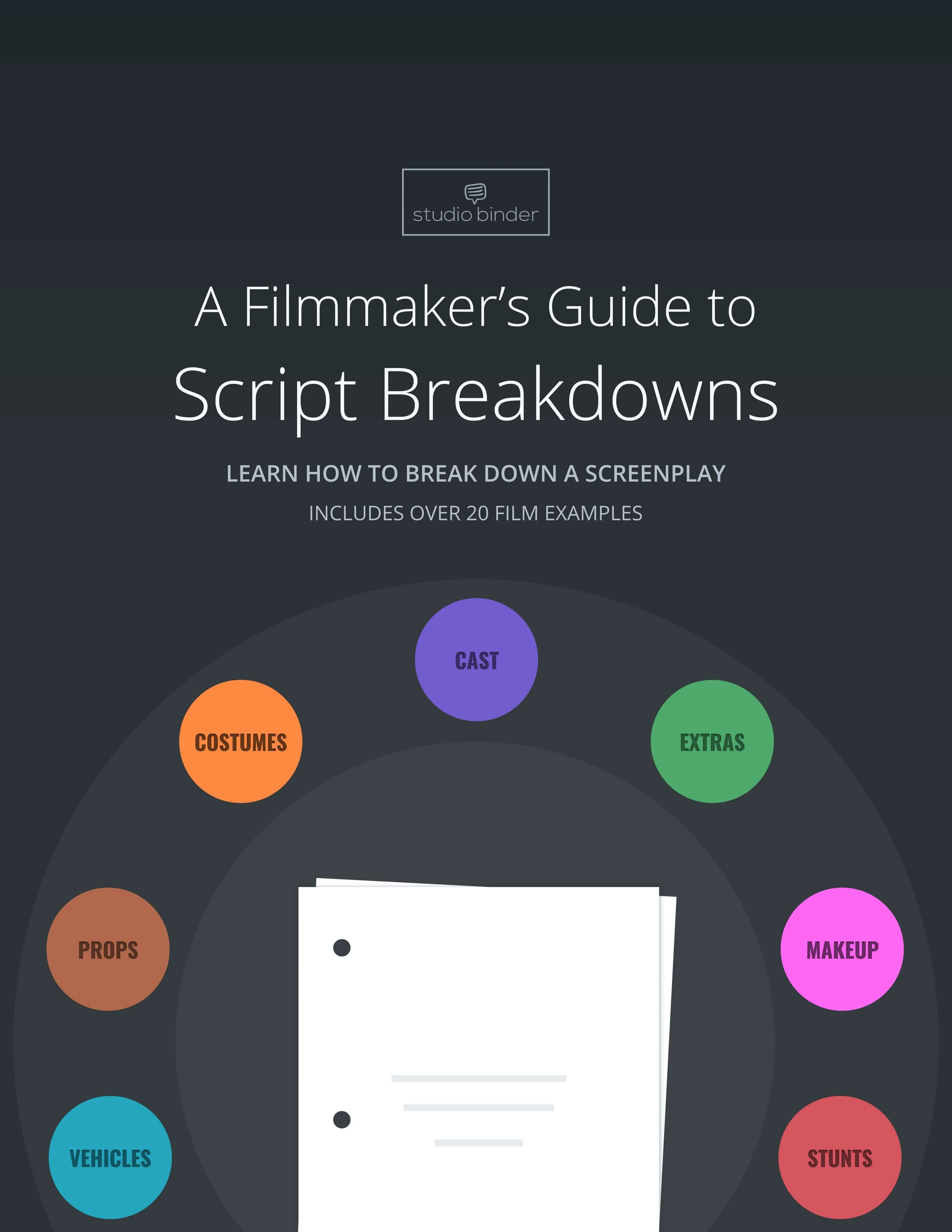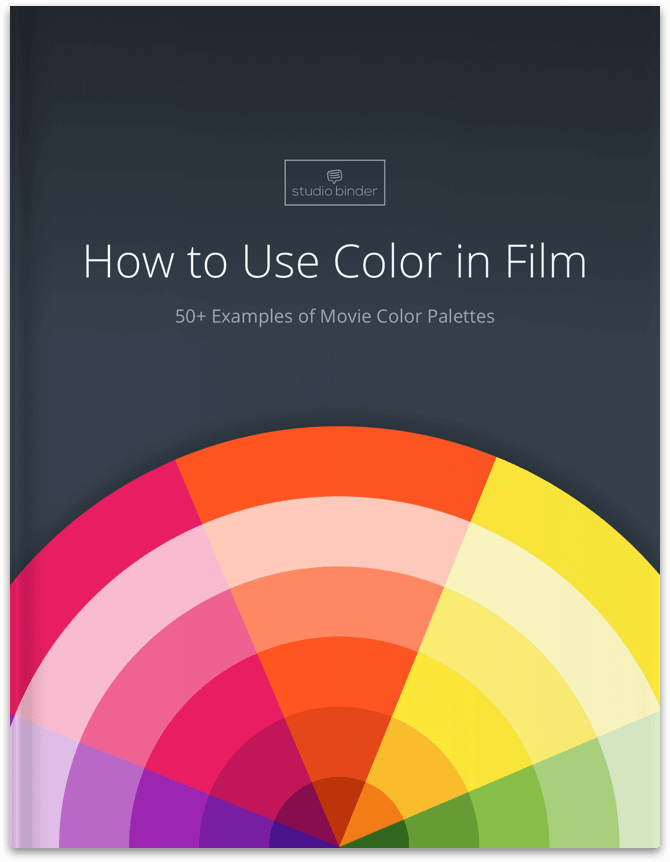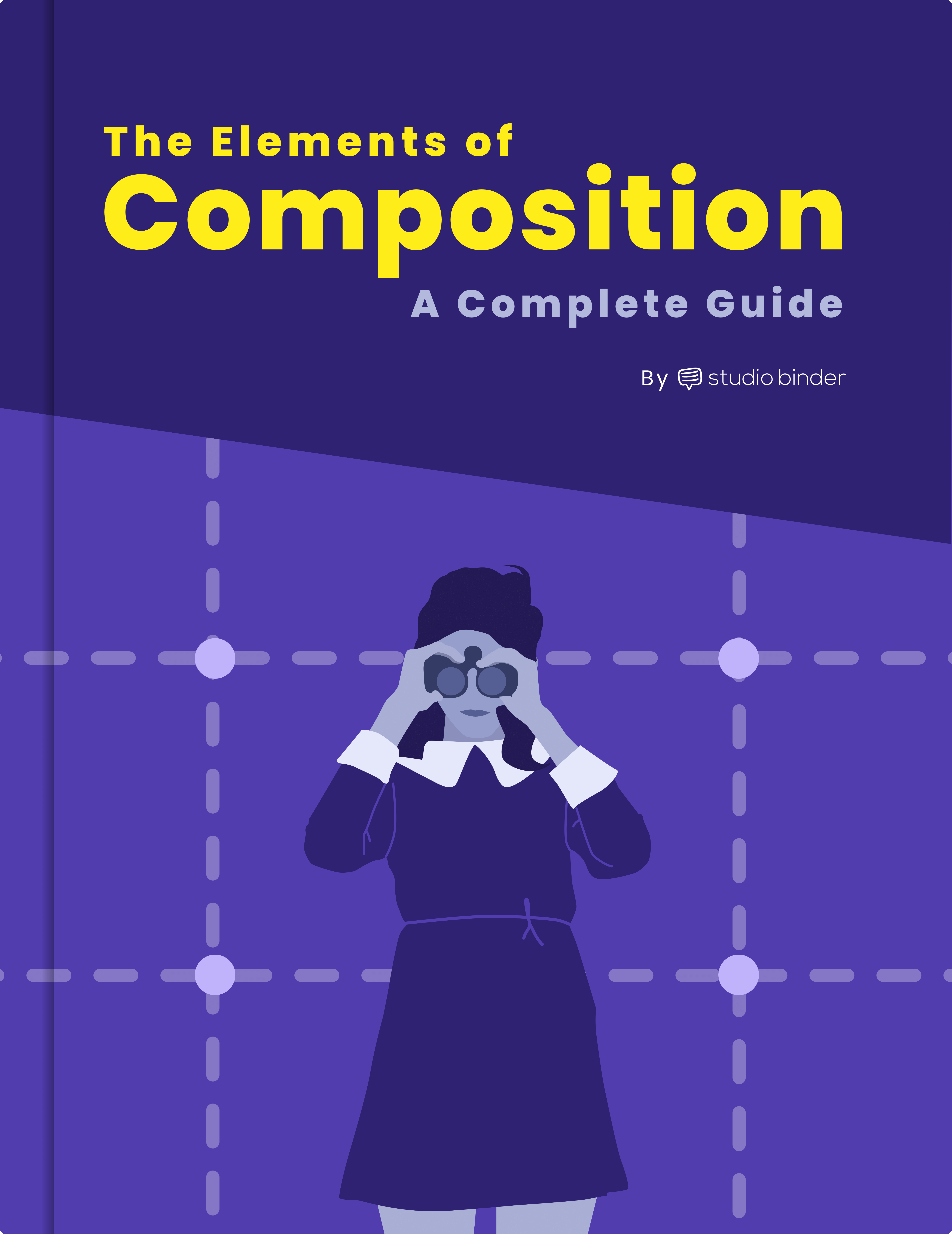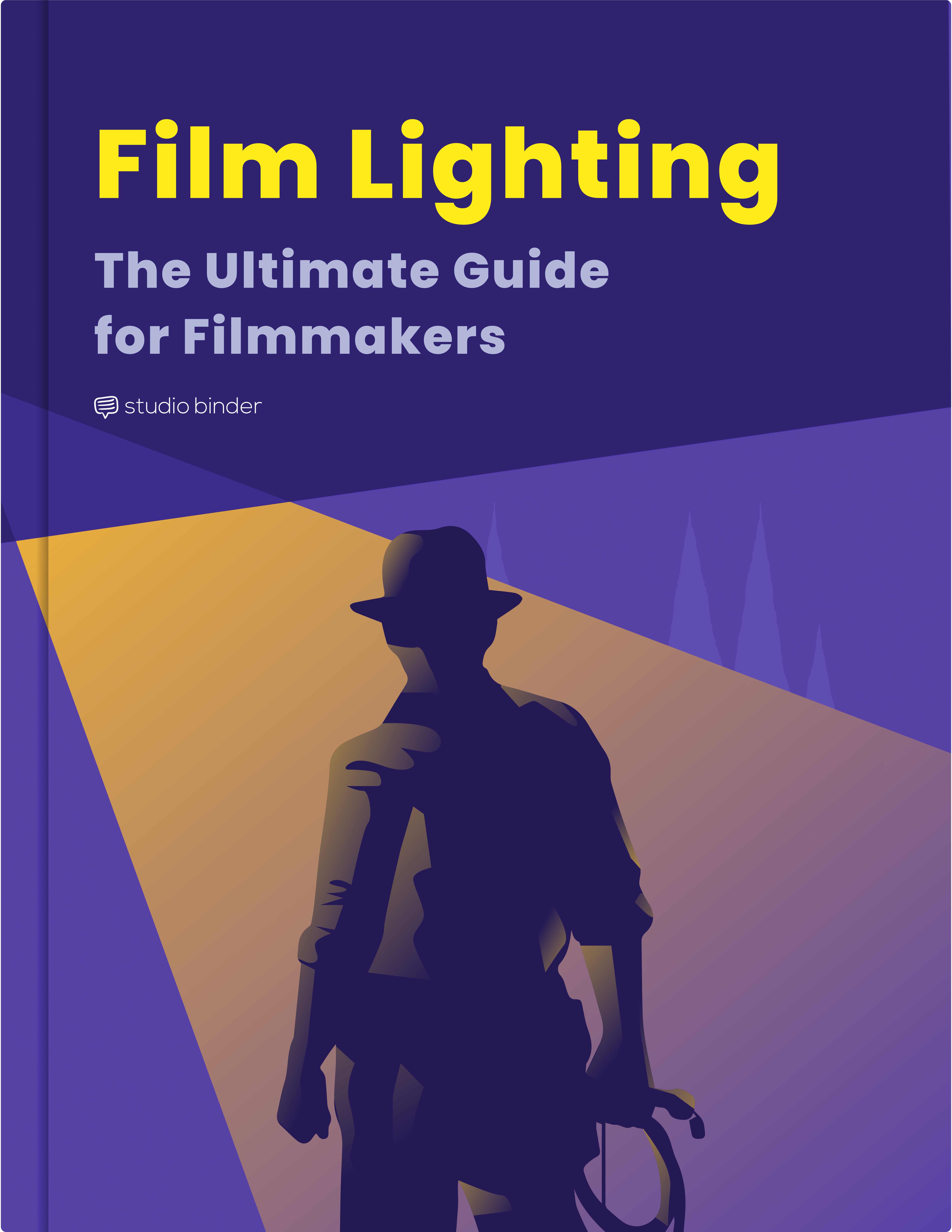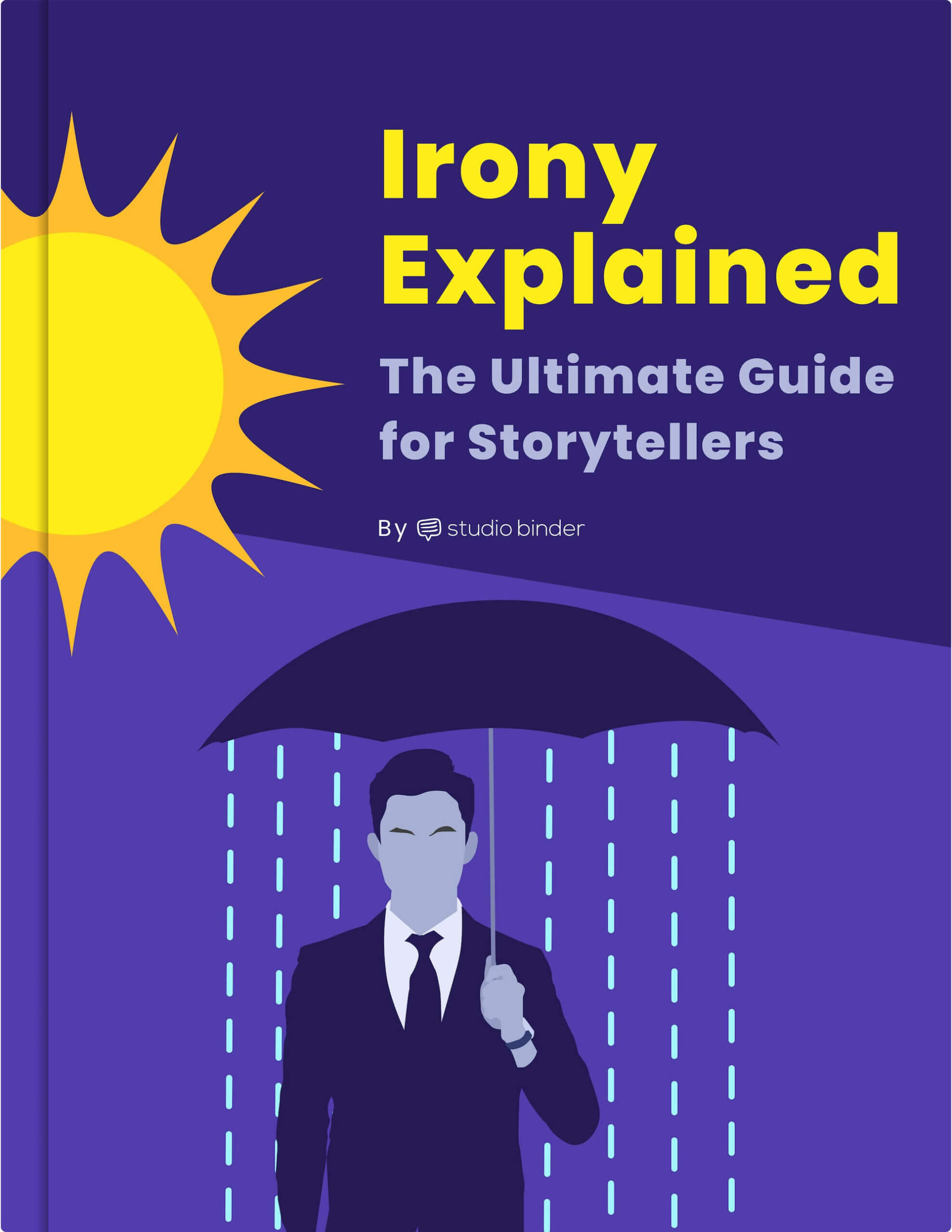
Irony Explained: The Ultimate Guide (FREE Ebook)
A comprehensive and straightforward guide for any storyteller looking to wield the power of irony.
We'll cover the various types of irony and their unique storytelling values so you can expand your writer's toolkit.
What is Irony
Understanding the various types of irony, you'll be able to write more complex and layered stories
There are many literary devices available to writers and each has their particular strengths. Irony is an extremely powerful tool but in order to wield it, you have to understand it.
This ultimate guide explains 12 different forms of irony to allow you to find the right tool for the right story, and enhance your storytelling expertise.
You'll learn:
Contents
What is Irony? | Cosmic Irony |
Verbal Irony | Poetic Irony |
Situational Irony | Structural Irony |
Dramatic Irony | Historical Irony |
How Writers Use Irony Sarcasm Understatement | Tragic Irony Overstatment Socratic Irony |
Different Types of Irony
The various types of irony
Within irony, there are three main types: verbal, situational, and dramatic irony.
Each of these types functions in a different way to present the same core meaning of irony — the difference between "expectation" and "reality."
We'll explain how these major types operate and how each sub-type adds another layer of specificity and focus. With a mastery of all these forms of irony, you will be better equipped to apply them in your own writing.
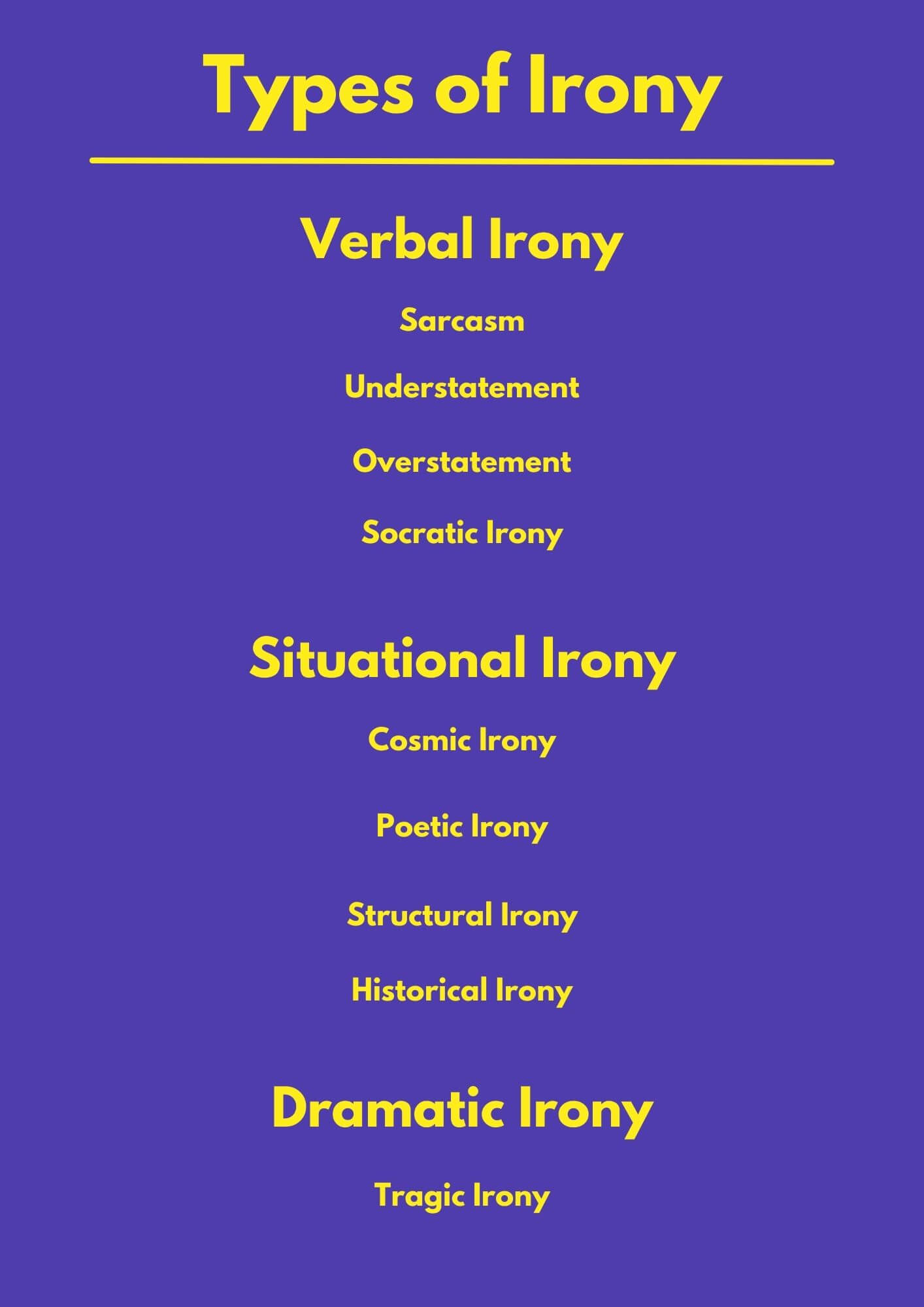
Irony Meaning Explained
The core principle of irony and it's purpose
Irony is actually a frequently misunderstood concept. What many people call ironic is simply coincidence.
Any irony definition can be summed up as "when expectation is the opposite of reality." Opposite, not just different or surprising — his is the key part of irony that often gets passed over.
The purpose of irony in storytelling is to use these moments of conflict between "what is" and "what seems to be" to resonate with audiences who have encountered similar discrepancies in their own lives. We'll show you examples of perfectly deployed irony that hits on a different level than other literary devices.
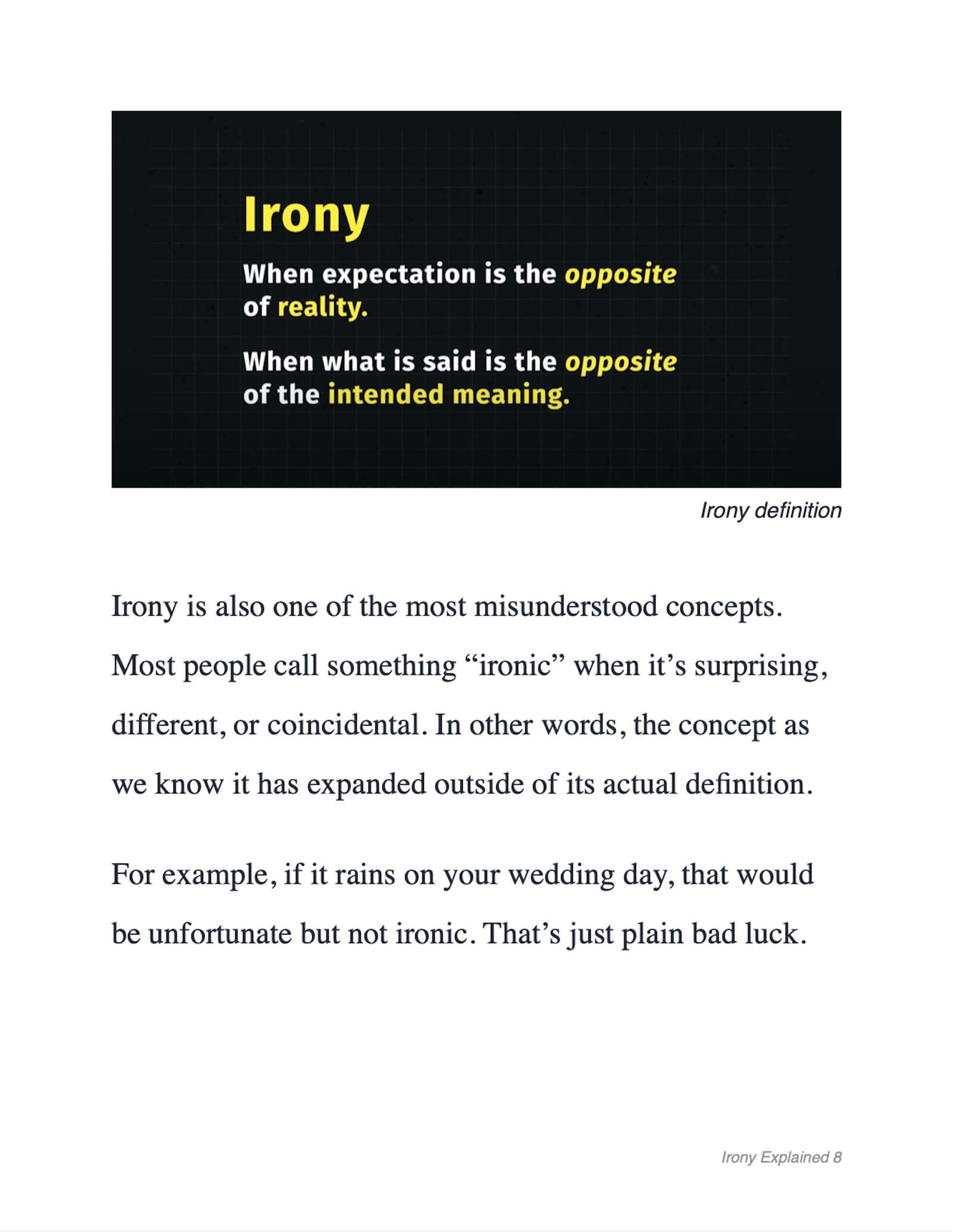
Irony Examples
Examples of irony from the greats
It can be difficult, or near impossible, to understand irony without seeing it in action. As we'll see, the actual irony definition is very specific, which is why we've gathered the best examples from film to illustrate this complex concept.
We'll look at how verbal irony can turn simple dialogue into dynamic characterization. We'll explore how dramatic irony is the foundation for suspense. And we'll examine how situational irony creates satisfying and powerful endings.
With filmmakers like Steven Spielberg, James Cameron, Stanley Kubrick, and Bong Joon Ho bring their unique spin to ironic storytelling.

More from inside Irony Explained: The Ultimate Guide
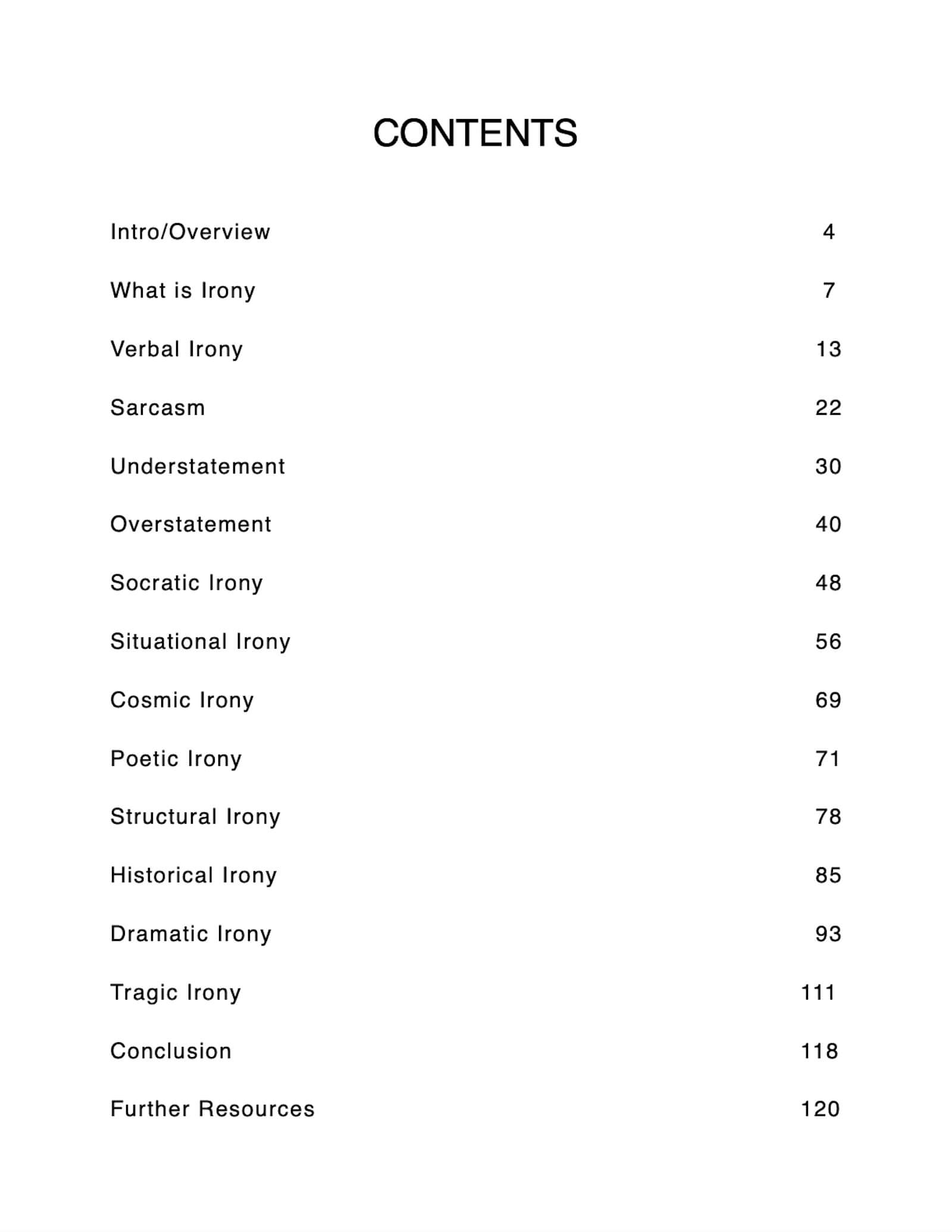
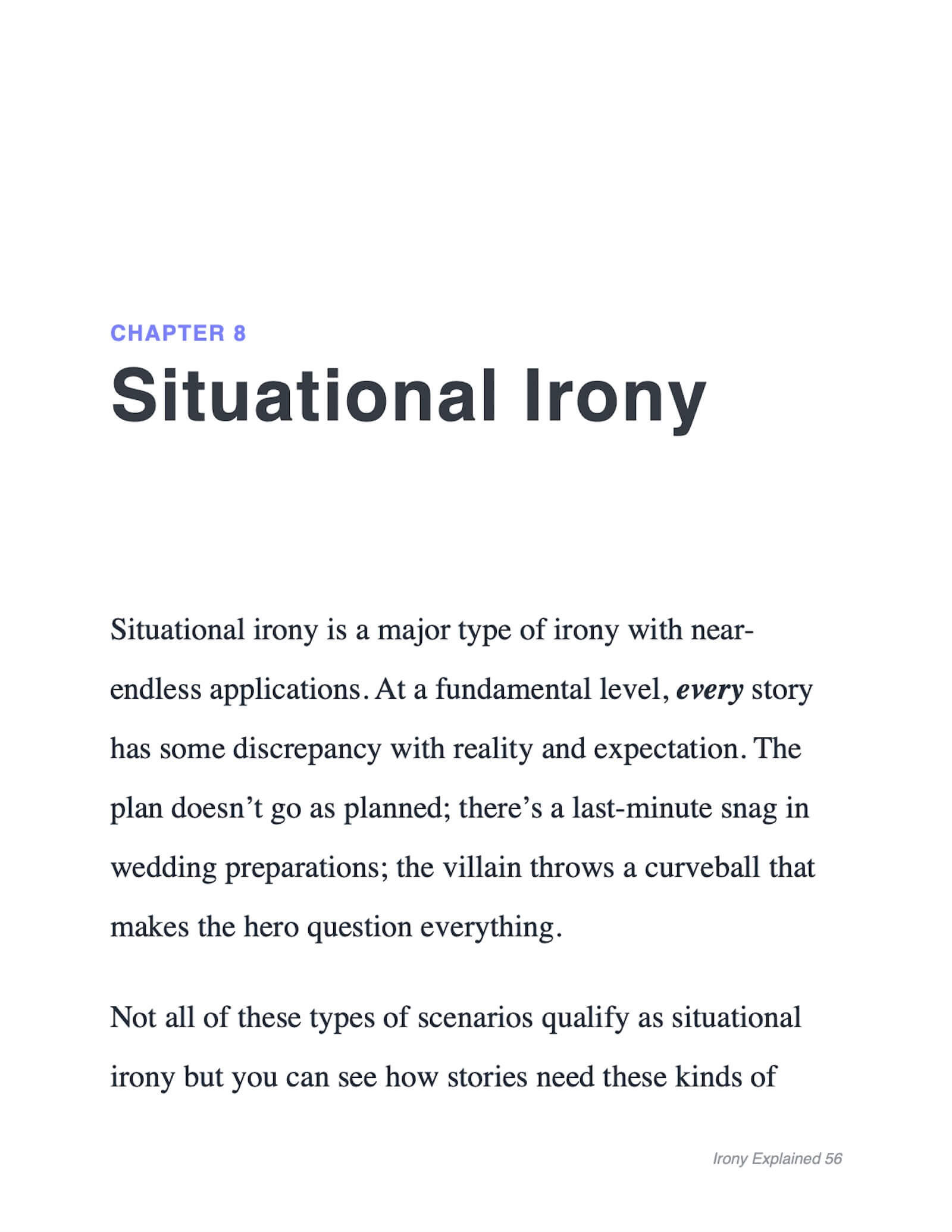
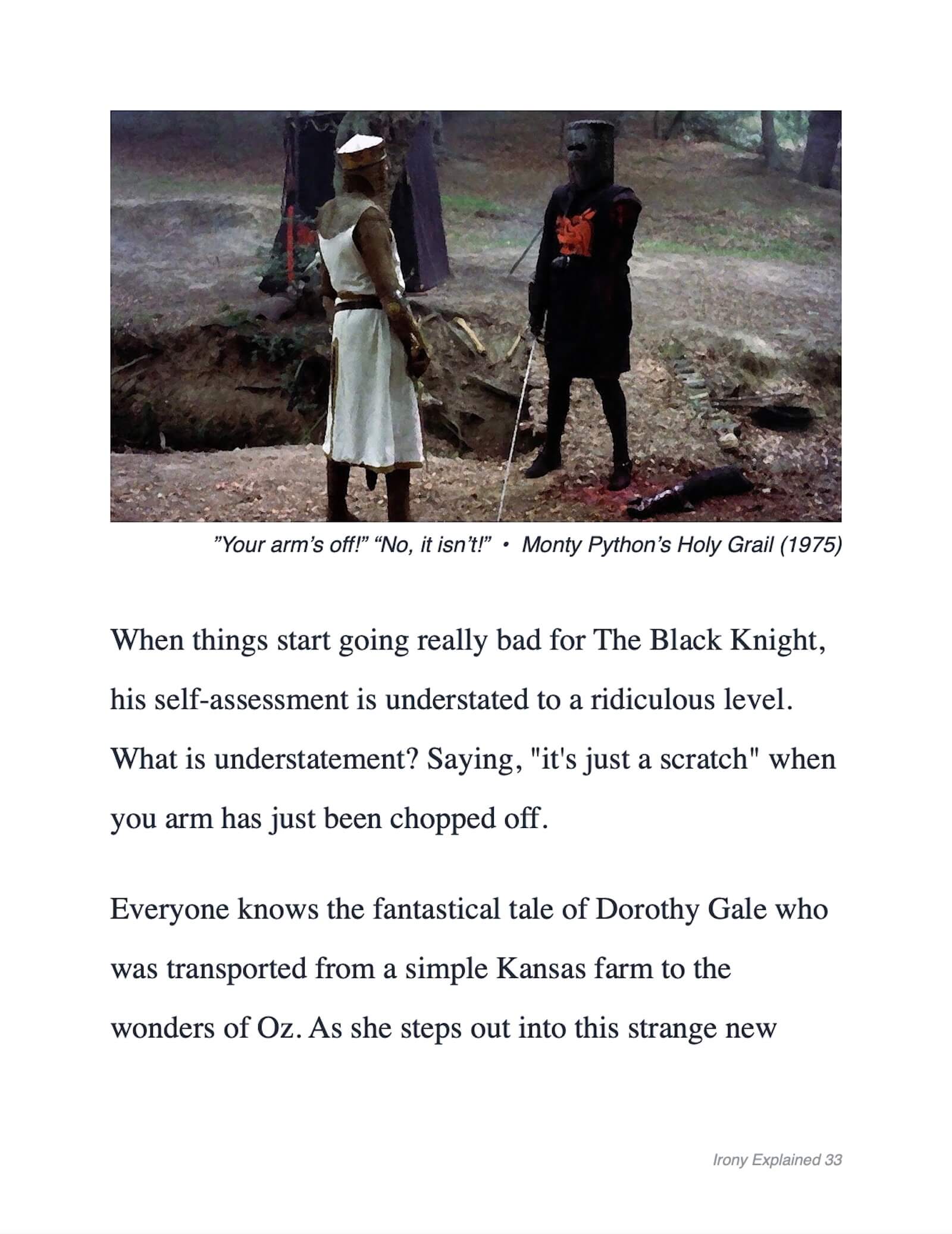
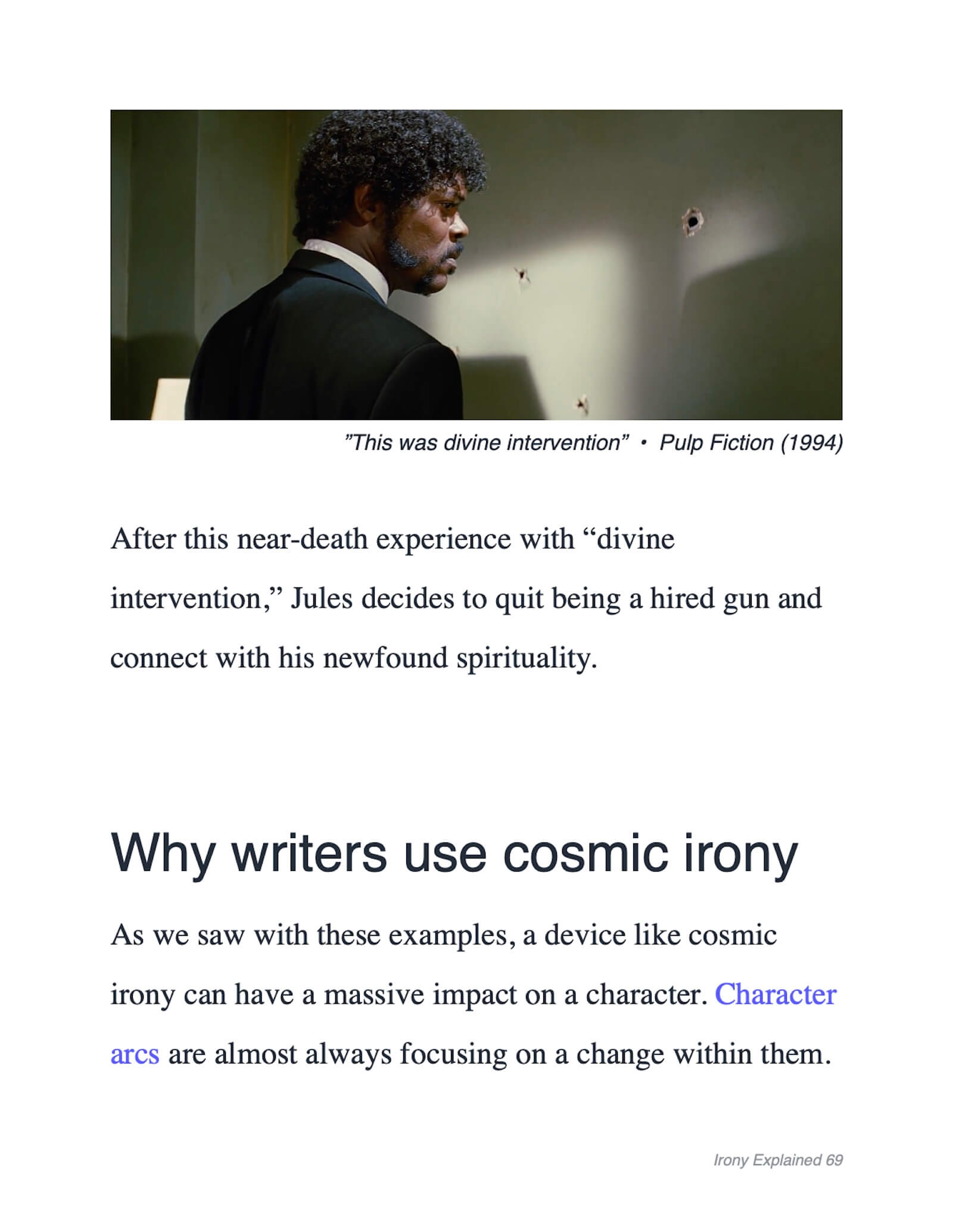
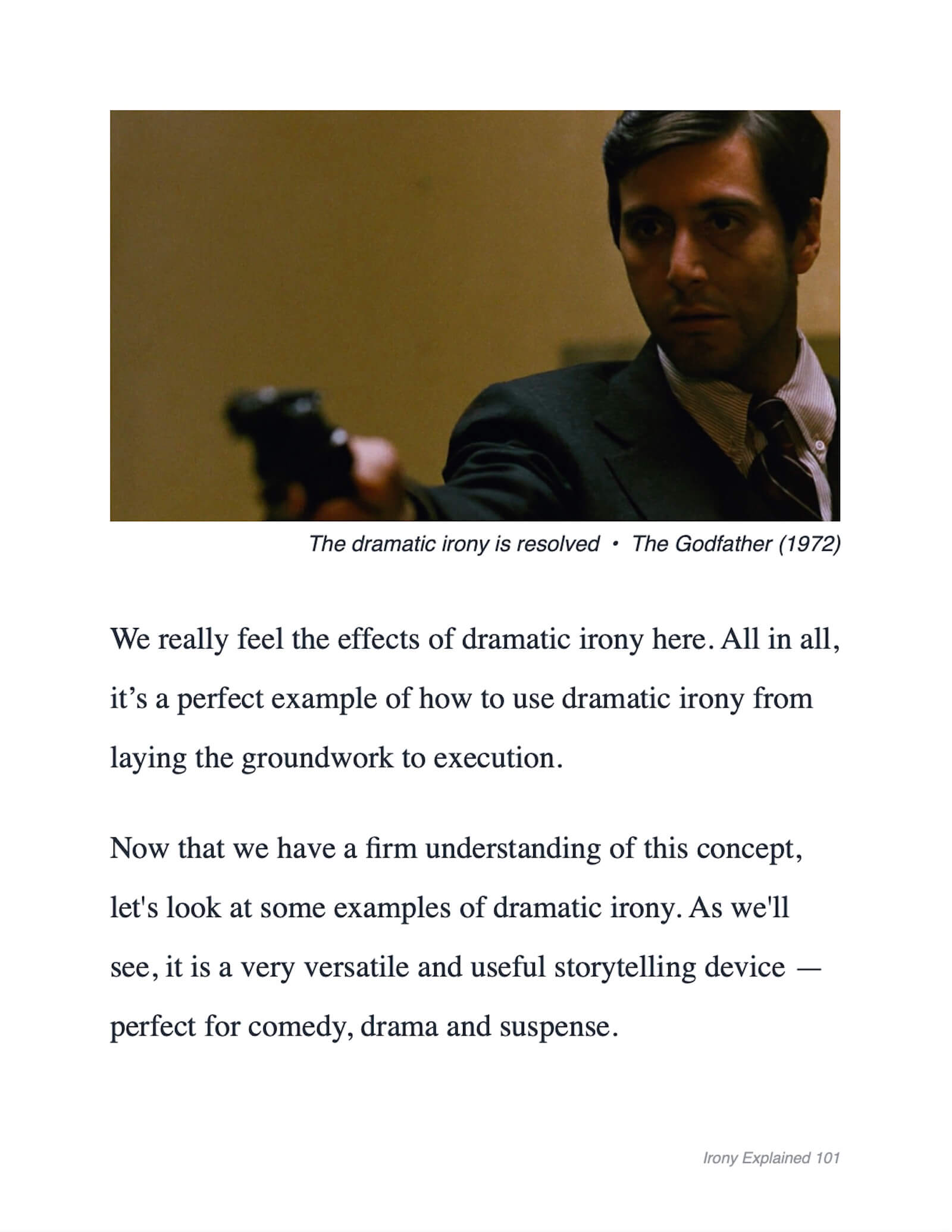
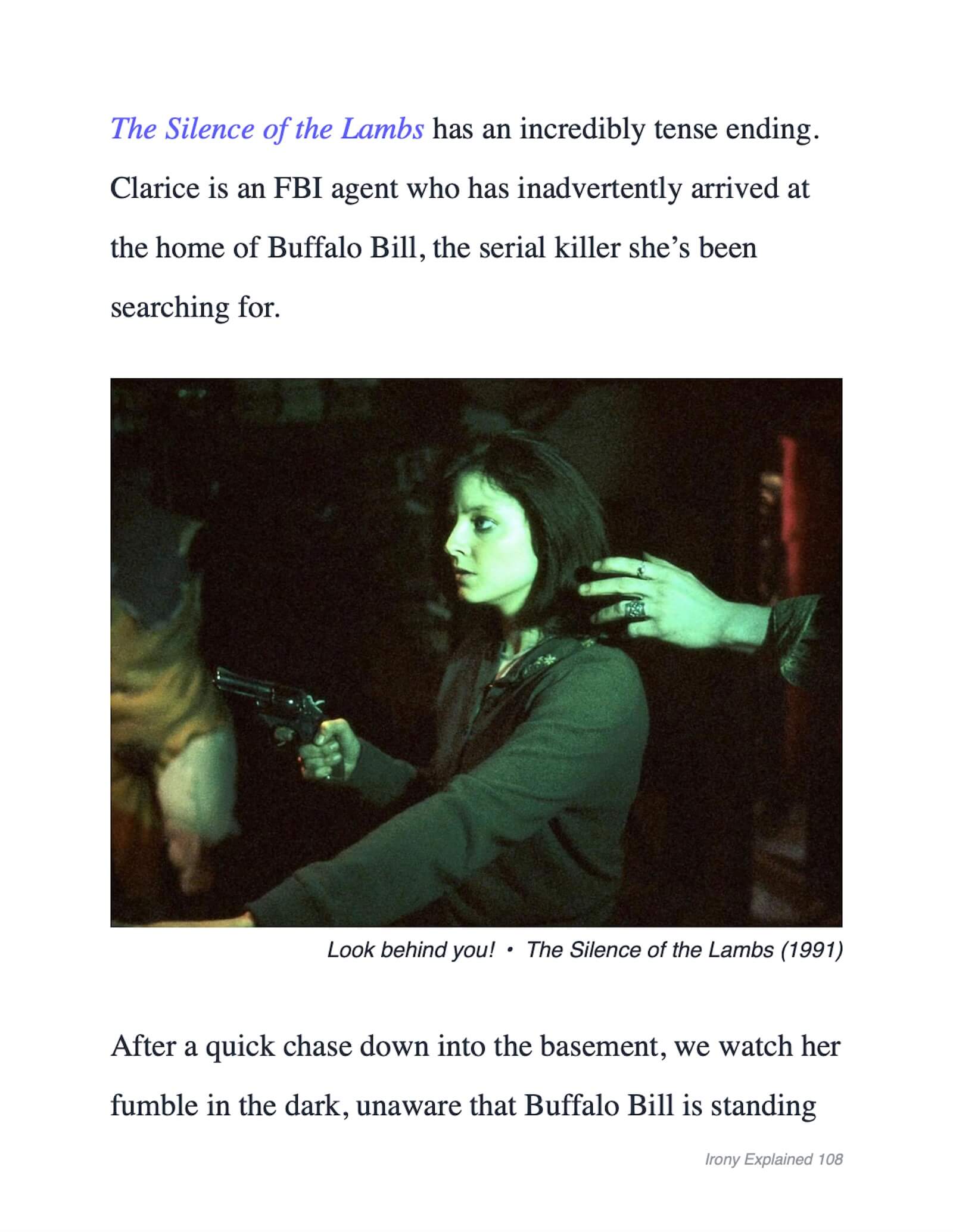

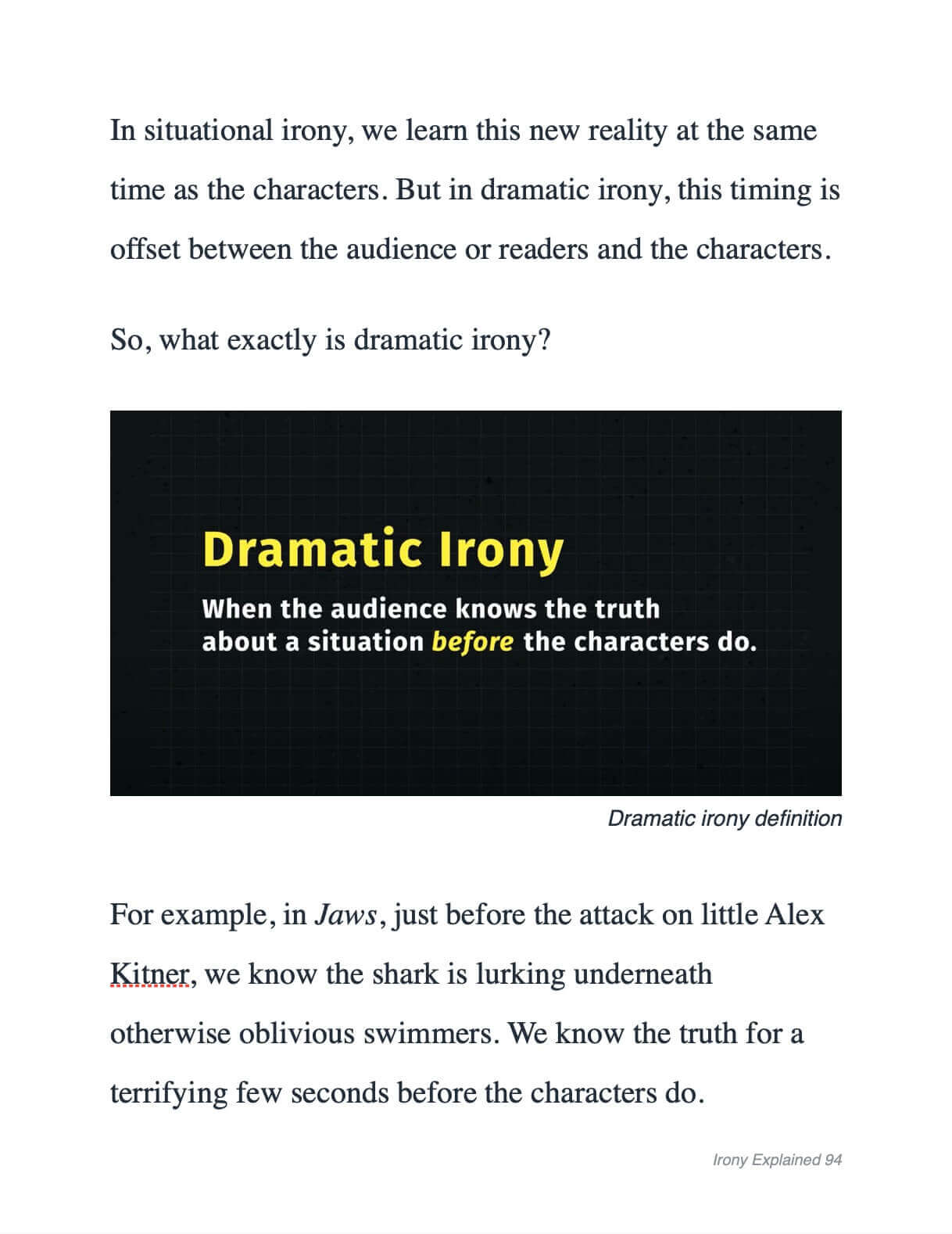
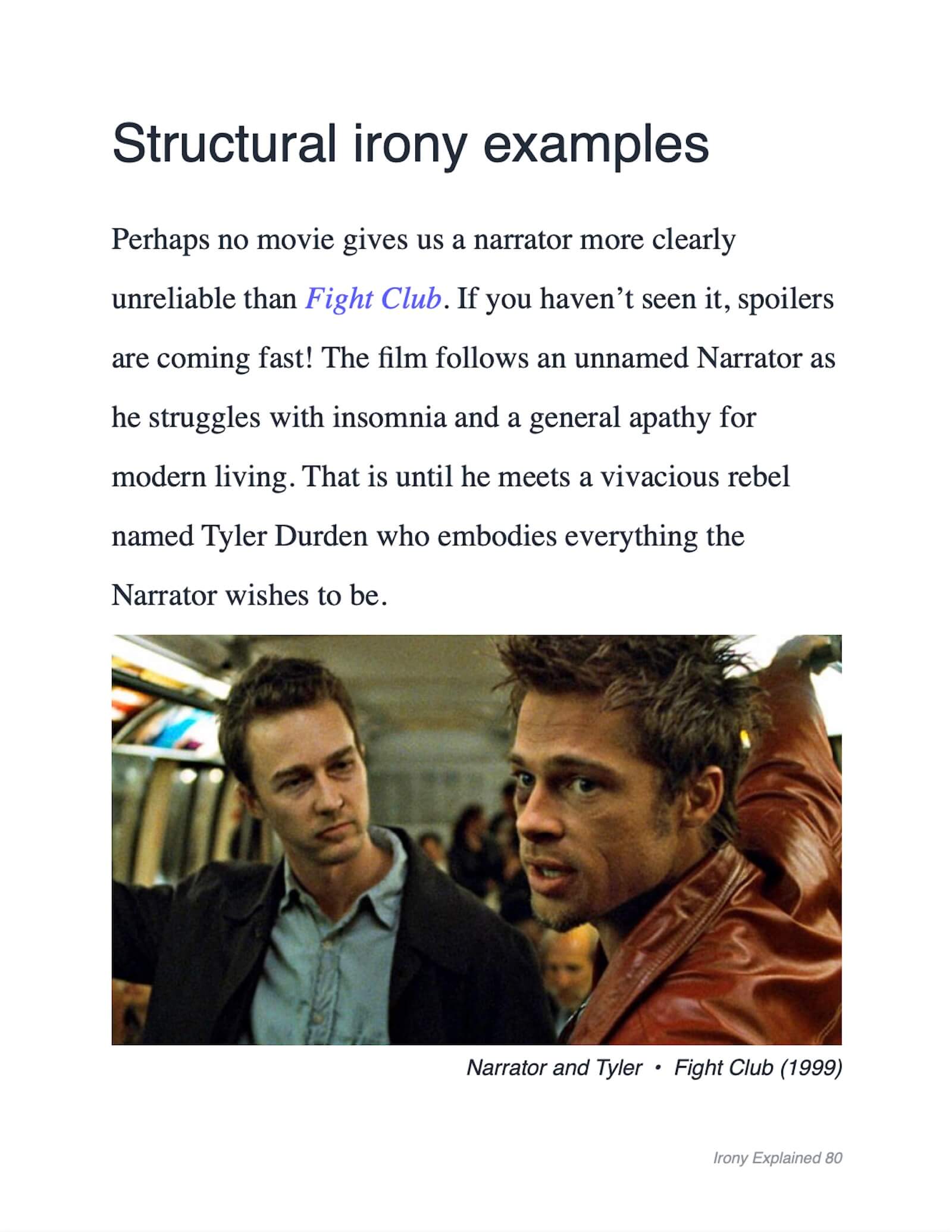
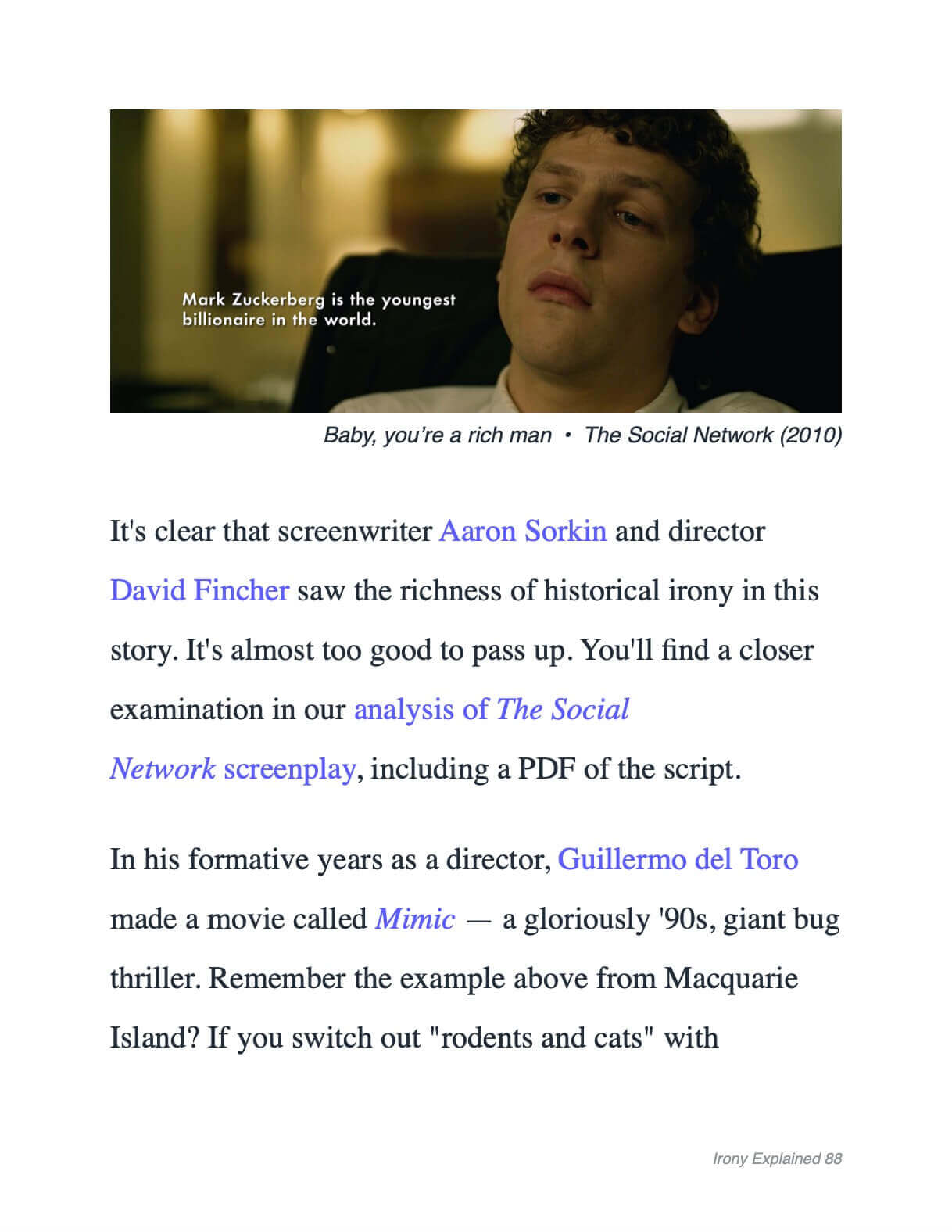
Get your free ebook here
Enter your email so we can send you the book.


